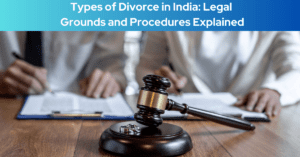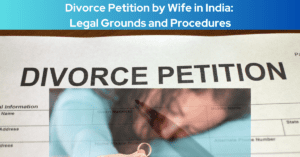
(Ctrl+Z) “Marriage” = Annulment of Marriage
Yes, you read it correctly. It is ‘undoing’ a marriage. The decree of nullity when passed by the court, cancels the marriage and returns the status of both the parties to where it was prior to the marriage that is annulled. Whereas in cases of Divorce, the parties’ status becomes “Divorcee”. However there are certain grounds and conditions, only if these are met a decree of annulment is passed by the court.
Validity of Marriage is in Question
When the validity of the marriage is in question, the marriage is either void or voidable. Void means it did not exist at all from the beginning and goes with the Latin maxim void ab initio. Whereas in cases of voidable marriage, there are reasons/ grounds that can make the marriage void but it is the injured party to such marriage that has to initiate the annulment proceeding through the court. The grounds for void/ voidable marriages vary between the different personal laws.
Nullity & Annulment of Marriage
Decree of Nullity means the court has declared that the marriage is void from the beginning, in other words marriage did not exist as per law. Annulment is a procedure declaring voidable marriage null and void.
What are the outcomes of annulment?
- Marital Status
The marital status of the parties are put back to what it was prior to the marriage in question. This can be further explained with illustration;
- A(Female) married B(Male), after a month found out that B has a wife C. B has not divorced C. A approaches the court and pleads for nullifying the marriage with B. Court decrees Annulment. Status of A is now changed to ‘unmarried’. Status of B returned to ‘married’ and the marriage with C continues.
- Records are deleted
Any record of such marriage is deleted and treated as if there wasn’t any marriage that took place. The certificate issued by the Marriage Registrar can also be canceled through court decree.
*Deleted – refers to canceled or not considered to be valid
- Maintenance Claim
Claim for maintenance will be considered by the court depending upon the circumstances of each case.
Karnataka High Court in the case of Basappaa v Siddagangamma II (1992) DMC 167 on 10th March 1992 it was stated that ‘….where marriage is a nullity as envisaged under Clauses (i), (iv) and (v) of Sec 5 of the Hindu Marriage Act the question of a wife claiming maintenance under Sec 18 of the Hindu Adoption & Maintenance Act, 1956 would not arise.’
Whereas High Court of Kerala has given judgments in the cases of Subramonian v Sreelatha 1985 KLT 713 and Sudheendran v Rathi on 2 June 2009 it was observed that ‘Use of the expression husband and wife in Sec 24 cannot justify a contention that the marriage which is sought to be declared null and void must be held to be valid to entitle the woman to relief under Section 24. Section 24 uses the expression husband and wife to refer to the parties of a marriage admittedly solemnised and the use of those expression under Sec 24 will not justify a contention that the parties who seek decree of nullity cannot claim under Section 24 at all or that they can claim relief only after they finally succeed in the proceedings under Sec 11.’
Sec 24 – Maintenance pendente lite and expenses of proceedings
Sec 11 – Void marriages
- Legitimacy of Children
In the case of Revansiddappa v Mallikarjun (2011) 11 SCC 1, the Supreme Court held that children born out of both ‘void and voidable marriages’ are legitimate and can claim rights in parents’ properties under the Hindu succession law.
Grounds for Nullity and Annulment of Marriage:
The conditions which make the marriage void as per Hindu Marriage Act, 1955 are listed below;
- Either one of the parties have a living spouse
- Parties are within prohibited relationship
- Parties are sapindas of each other
To know these conditions in detail and also to understand what are the conditions that make the marriage void click here.
The grounds which make the marriage voidable as per Hindu Marriage Act, 1955 are as follows:
- Non consummation of marriage due to impotency
- Incapability to give consent due to unsoundness of mind, suffering from mental disorder or recurrent attacks of insanity
- Consent was taken by force or by fraud
- Respondent was pregnant by some other person than the petitioner at the time of marriage
These grounds have certain conditions which can be read here.
How is Annulment different from Divorce?
| Annulment of Marriage | Divorce |
| Annulment is a legal declaration that erases a marriage and rules it to be null and void, meaning it never existed. | A legal dissolution/termination of a valid and existing marriage. |
| Grounds for seeking annulment of marriage are specific and stringent and require strict adherence to the legal qualification. | In case of mutual divorce there need not be any ground. For contested cases there are different grounds specified. |
| Claim for maintenance generally not allowed. However in some cases due to the fault of one of the parties, the court may allow payment of maintenance. | Claim for maintenance and alimony is possible, if the parties wish to do so. |
| Witness/ evidence stage is very crucial in deciding the case. | For Mutual Consent and Contested cases settling through mediation, evidence is not required. |
| There is no scope for compromise or mediation in these civil cases. | At every step, the parties are free to seek the help of a mediator and settle the differences. |
| After the decrees of annulment is passed, Status of the parties will return to that was before the marriage. | After the divorce decree is granted, the parties are ‘divorced’. |
| There is a limitation period of 1 year from the date of marriage or from the date when fraud was discovered or from the date when force ceased, to file the suit. | The divorce case can be filed after completion of one year of marriage. Based on different grounds, the time limit is defined under different matrimonial laws. |
Conclusion
Annulment of Marriage is not an alternative remedy for dissolution of a valid marriage, rather it is a provision in the law to cancel an invalid marriage. The grounds to seek annulment are specific and with appropriate evidence to prove the existence of these grounds is very crucial.

Advocate Kiran S R – A highly skilled, passionate, dedicated advocate, with vast wealth of knowledge, professionalism, ethical approach and expert skills. One of the sharpest legal mindset brings the best principles of legal practice to the forefront. A qualified Engineer turned Advocate. His passion, dedication and vision to help and assist his clients achieve the best results is his driving force.


Deciphering the word ‘Annulment’ in Matrimonial Law

Types of Divorce in India: Legal Grounds and Procedures Explained

Is One-Sided Divorce Possible in India?

Cruelty as a Ground for Divorce in India: A Legal Analysis

Divorce Petition by Wife in India: Legal Grounds and Procedures

The Divorce Act, 1869: A Detailed Analysis

Advocate Kiran S R – A highly skilled, passionate, dedicated advocate, with vast wealth of knowledge, professionalism, ethical approach and expert skills. One of the sharpest legal mindset brings the best principles of legal practice to the forefront. A qualified Engineer turned Advocate. His passion, dedication and vision to help and assist his clients achieve the best results is his driving force.

